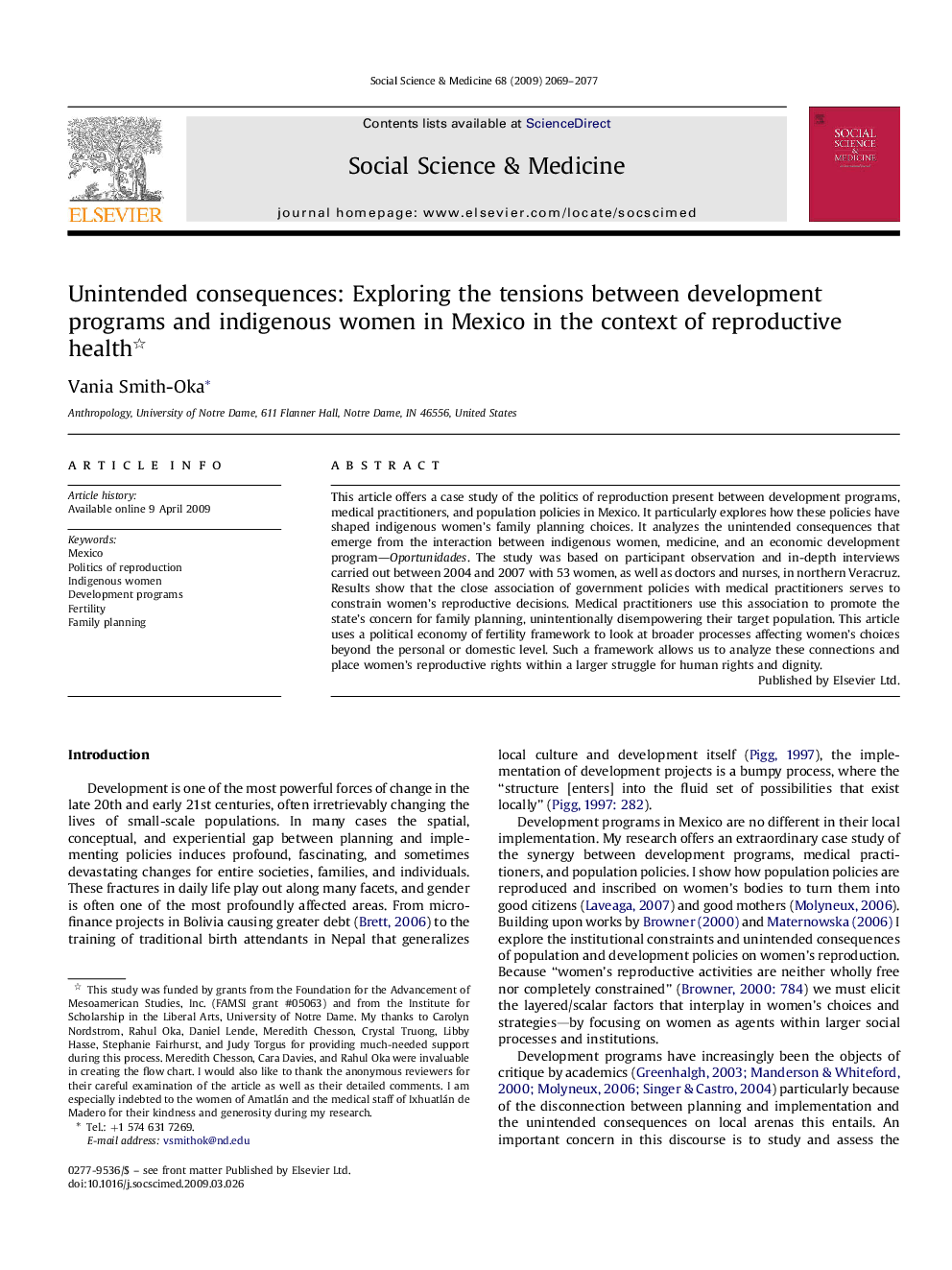| Article ID | Journal | Published Year | Pages | File Type |
|---|---|---|---|---|
| 10472199 | Social Science & Medicine | 2009 | 9 Pages |
Abstract
This article offers a case study of the politics of reproduction present between development programs, medical practitioners, and population policies in Mexico. It particularly explores how these policies have shaped indigenous women's family planning choices. It analyzes the unintended consequences that emerge from the interaction between indigenous women, medicine, and an economic development program-Oportunidades. The study was based on participant observation and in-depth interviews carried out between 2004 and 2007 with 53 women, as well as doctors and nurses, in northern Veracruz. Results show that the close association of government policies with medical practitioners serves to constrain women's reproductive decisions. Medical practitioners use this association to promote the state's concern for family planning, unintentionally disempowering their target population. This article uses a political economy of fertility framework to look at broader processes affecting women's choices beyond the personal or domestic level. Such a framework allows us to analyze these connections and place women's reproductive rights within a larger struggle for human rights and dignity.
Related Topics
Health Sciences
Medicine and Dentistry
Public Health and Health Policy
Authors
Vania Smith-Oka,
